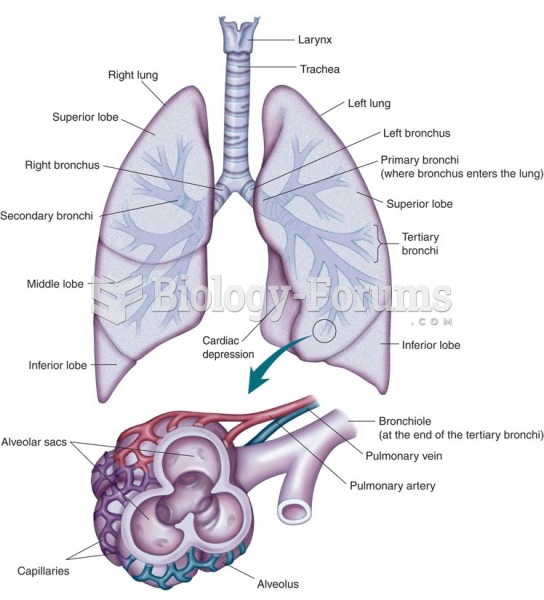|
|
|
Illness; diuretics; laxative abuse; hot weather; exercise; sweating; caffeine; alcoholic beverages; starvation diets; inadequate carbohydrate consumption; and diets high in protein, salt, or fiber can cause people to become dehydrated.
Eating carrots will improve your eyesight. Carrots are high in vitamin A (retinol), which is essential for good vision. It can also be found in milk, cheese, egg yolks, and liver.
Most women experience menopause in their 50s. However, in 1994, an Italian woman gave birth to a baby boy when she was 61 years old.
More than 4.4billion prescriptions were dispensed within the United States in 2016.
Autoimmune diseases occur when the immune system destroys its own healthy tissues. When this occurs, white blood cells cannot distinguish between pathogens and normal cells.
 Two important changes occur in the upper airway in croup:The epiglottis swells, thereby occluding th
Two important changes occur in the upper airway in croup:The epiglottis swells, thereby occluding th
 The respiratory system. (a) Sagittal section of the head and neck, revealing the organs of the upper
The respiratory system. (a) Sagittal section of the head and neck, revealing the organs of the upper
 Tracheostomy. A tracheotomy, or incision into the trachea, is performed to create an opening into th
Tracheostomy. A tracheotomy, or incision into the trachea, is performed to create an opening into th




